Drug testing is a legal and necessary component in any workplace safety program.
While it is important to protect the rights and privacy of employees, business owners also have an obligation to protect other employees from those who could increase the safety risks of those around them. Federal employees, from secret service to transportation workers, are testing for drug use. The topic of drug testing, however, comes with a lot of uncertainty for both employers and employees. Take the guesswork out of drug testing with a drug-free work policy that puts everyone at ease.
Can you require drug testing during the hiring process?
Emphatically, YES! While rules vary from state to state as to what point during the hiring process a test can be required or the manner in which you must give employees or potential employees notice of such a requirement, all states do allow for drug testing. Drug testing must be performed unilaterally and not be discriminatory to any particular employee. Workplace Safety Screening recommended pre-employment drug screening for the following reasons:
- To reduce workplace accidents and injuries
- To reduce medical claims and worker’s compensation claims
- To reduce employee turnover and the high cost of replacing employees
“A majority of employers (57%) conduct drug testing on job candidates, according to a poll by the Society of Human Resource Management.”
Can an employee be fired for testing positive on a drug test?
Yes, employees can be terminated for on-the-job drug use, as it becomes a liability issue for employers and a safety risk for other employees. With that said, employers should be aware of exceptions that could lead to employees taking legal action. Your company’s drug-free work policy should be spelled out explicitly for all employees, should be signed annually by all employees as an acknowledgment of the drug-free policy, and a copy of the agreement should be documented and given to both the employee and HR. If an employee does test positive and your drug-free policy does make a path for re-onboarding an employee, all aspects of the rehabilitation process should be followed and documented to protect all parties. Here are some situations to consider when you encounter a positive drug test.
A positive marijuana test in states where recreational or medicinal use is not legally prohibited.
Employers do not have to tolerate on-duty use of marijuana, regardless of state law. Just like with alcohol, employees may be free to participate in the use of such substances in their free time, but no employer has to accommodate any intoxicated employee while they are performing their duties at work. The same is true for marijuana use. However, since states vary on their legal use of the substance, some states can prohibit any and all use of the drug, while others must accommodate for off-duty marijuana use. Check your state laws here.
“Marijuana was the second most common substance to be used during work hours, with over 22% of respondents saying they have used the drug recreationally at work.”
A positive drug test for an employee using prescription meds for a medical issue
Employees who are taking legitimate prescription medication for a present condition cannot be fired for testing positive, as they are protected by the American with Disabilities Act. However, it is illegal for an individual to take prescription drugs that have not been prescribed to them by a doctor. Testing positive for a prescription medication that was not acquired legally can lead to termination.
“In 2020, 9.3 million people reported misusing prescription pain relievers in the past 12 months.”
A positive drug test that an employee believes to be a false positive
Employees who believe that their test results rendered a false positive can protest the results by filing a complaint with an employee advocacy organization, a labor union or a private lawyer. Protocol for how to handle an alleged false positive will vary state by state, so check your state laws to determine the proper procedure.
“Some data suggests 5 to 10 percent of all drug tests may result in false positives and 10 to 15 percent may yield false negatives.”
A positive drug test for an employee who is undergoing a drug treatment program
Employers have the right to test employees who are undergoing a program that would allow them to return to work once the treatment program is complete. It is your right as an employer to make sure that an employee is complying with the re-onboarding procedures laid out in the drug-free work policy.
“Over 26% of employed adults have substance abuse or addiction in their families. Over 42% of these employees felt their productivity suffer as a result.”
For more information about drug and alcohol testing as part of a pre-employment screening program or as part of ongoing safety protocols or to get started on a comprehensive drug free work policy that works for everyone, call Workplace Safety Screenings.

.png?width=500&height=500&name=Blue%20and%20White%20Classic%20Shield%20Financial%20with%20Star%20Logo%20Design%20(1).png)


